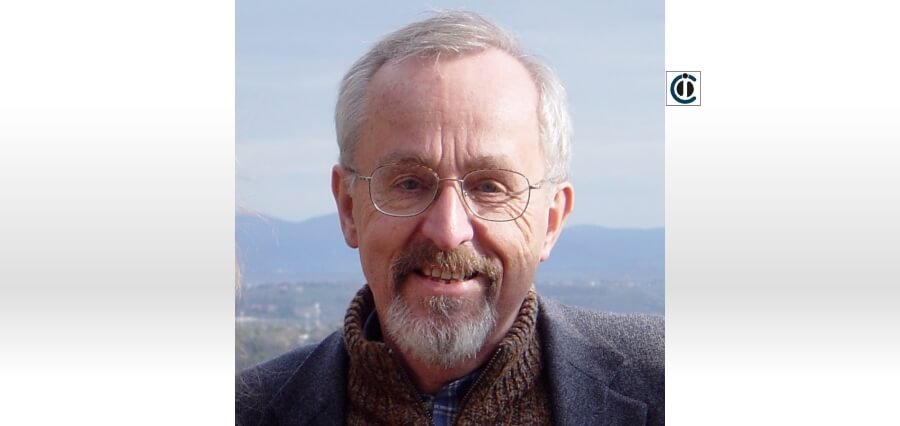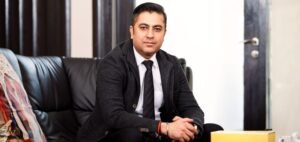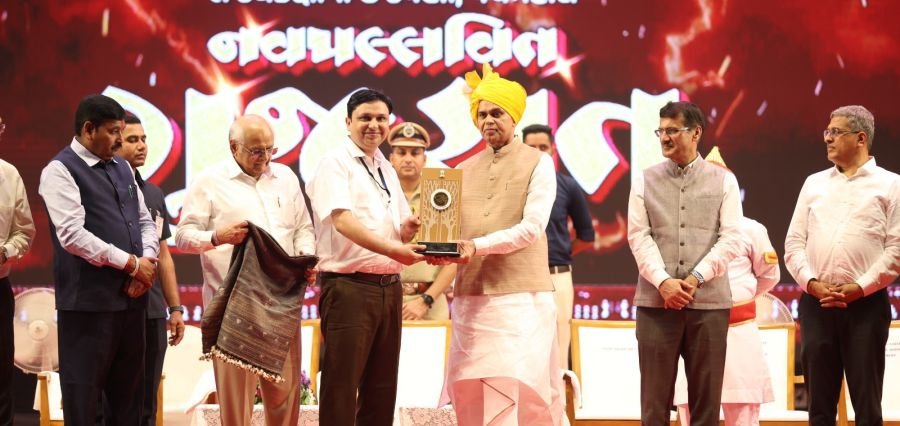At the Massachusetts Institute of Technology (MIT), legacy often takes the form of groundbreaking research, pioneering ideas, and a culture of mentorship that shapes generations. Yet few embody this legacy more holistically than Dr. Richard “Dick” Larson. Known affectionately within the halls of MIT as a “lifer,” Dr. Larson’s impact has stretched across multiple disciplines and decades. Now, with the establishment of a new endowed chair—the Distinguished Professorship in Data, Systems, and Society—he ensures that his influence will continue to shape the Institute long after his tenure.
This professorship is not just a recognition of Dr. Larson’s contributions; it is a celebration of the ethos he brought to MIT—interdisciplinary curiosity, intellectual resilience, and a commitment to applying systems thinking to real-world challenges. From engineering to operations research, from urban systems to educational innovation, Dr. Larson has woven his career through five departments, culminating in the Institute for Data, Systems, and Society (IDSS). The creation of this endowed chair, effective July 1, marks a symbolic passing of the torch to future generations who will carry forward the tripartite mission of IDSS: to explore the dynamic interplay between data, systems, and society.
This gift, as Dr. Larson sees it, is more than financial support. It is a statement of belief—belief in the power of interdisciplinary inquiry, in the transformative potential of data science, and in the humanistic spirit that underlies systems thinking. As IDSS Director Fotini Christia aptly notes, this gesture “extends his already considerable legacy” and ensures that MIT will continue to be a beacon for scholars committed to tackling the world’s most pressing problems through the integration of data, systems, and society.
Honoring an MIT Lifer’s Vision
Dr. Richard Larson’s journey through MIT has been one of transformation and continuous reinvention. Beginning in the Department of Electrical Engineering during the 1960s, he later found intellectual homes in several other departments before settling into IDSS. His trajectory is a rare academic narrative that reflects both personal growth and institutional adaptability.
In reflecting on this journey, Dr. Larson shared, “As a faculty member, MIT has not only accepted but embraced my several mid-career changes of direction.” These changes were not arbitrary but born from an evolving commitment to addressing contemporary societal issues through the lens of engineering and systems thinking. The three pillars that now define IDSS—data, systems, and society—perfectly encapsulate the thematic arc of Dr. Larson’s career. His gift, he emphasizes, is a way of ensuring that others will follow in this path of interdisciplinarity and purposeful research.
By creating this endowed professorship, Dr. Larson affirms that intellectual legacy is built not just on personal achievement, but on empowering others to excel. His hope is that those who hold the chair in the future will continue to lead groundbreaking research, teach with passion, and mentor the next generation of innovators—just as he has throughout his distinguished career.
Deep Roots in Public and Private Sector Research
Dr. Larson’s contributions are far-reaching. A luminary in operations research, he has applied his systems expertise to an impressive array of real-world problems. His research spans emergency response optimization, disaster preparedness, public health modeling, pandemic response strategies, smart-energy systems, logistics, and even the psychology of waiting in lines—contributions that have informed both academic scholarship and practical applications.
His passion for education is equally remarkable. One of his most impactful projects, MIT BLOSSOMS (Blended Learning Open Source Science or Math Studies), democratizes STEM education through engaging video lessons available worldwide. His recent book, Model Thinking for Everyday Life, extends his educational mission beyond the classroom, offering the public tools to think critically about the systems that govern daily life.
What sets Dr. Larson apart is not only the breadth of his expertise but also the civic orientation of his work. Whether addressing urban planning, healthcare delivery, or educational access, his projects reflect a deep-seated belief in using knowledge for public good. His career has always sought to bridge the gap between theoretical insight and societal benefit.
A Chair to Champion Interdisciplinary Scholarship
The Distinguished Professorship in Data, Systems, and Society serves as both recognition and inspiration. It recognizes the unique contributions of IDSS faculty members who exemplify excellence across research, teaching, and service. The first to hold this chair is Professor Alexander “Sasha” Rakhlin, whose work in machine learning and statistical computation mirrors the interdisciplinary spirit that defines IDSS.
Rakhlin’s research focuses on online prediction models, neural network complexity, and statistical learning theory. These areas are crucial in today’s data-driven society, where artificial intelligence and machine learning increasingly shape industries and institutions. Dr. Larson expressed his admiration for Professor Rakhlin’s work, emphasizing how it “builds bridges across disciplines and also connects different departments and units at MIT.”
For Dr. Larson, naming Rakhlin as the inaugural chairholder was a natural choice. “Professor Rakhlin represents the kind of forward-thinking, cross-disciplinary research that the professorship is meant to support,” he noted. The appointment is not merely symbolic; it is a signal that the legacy of data, systems, and society will remain at the forefront of MIT’s innovation agenda.
Advancing Learning Through Systems Thinking
At the heart of Dr. Larson’s academic philosophy lies a deep trust in the power of systems thinking—the ability to see interconnections, anticipate consequences, and model complexity. This way of thinking has served as the foundation of his research across diverse fields, enabling him to tackle everything from ambulance response times in cities to algorithmic fairness in education.
His work has always emphasized the importance of data-informed decisions within complex societal contexts. Systems are rarely simple, and Dr. Larson has dedicated his career to developing the tools and models that allow people to navigate this complexity more effectively. It is precisely this kind of thinking that IDSS seeks to cultivate in its faculty and students.
The new endowed chair is a concrete embodiment of that vision. It will allow MIT to support scholars who not only excel in their respective fields but who also challenge the boundaries between disciplines, asking bigger questions about how technology, policy, and human behavior interact. For Dr. Larson, it’s a continuation of his life’s work—a way to institutionalize the kind of thinking he has long championed.
A Legacy Beyond the Laboratory
While Dr. Larson’s research achievements are impressive, his legacy is equally rooted in mentorship and service. Known for his warm presence and intellectual generosity, he has guided countless students, faculty, and collaborators throughout his time at MIT. The creation of this chair is, in many ways, a continuation of that mentorship at a structural level—ensuring that support for academic excellence is built into the very framework of IDSS.
Dr. Larson’s gift is particularly meaningful given its timing. At a moment when higher education faces growing calls for relevance, equity, and innovation, this professorship positions MIT to remain at the forefront of scholarly leadership. It aligns resources with values, encouraging research that is not only excellent but impactful.
His colleagues are quick to acknowledge the profound impact of this gesture. “This gift is a reflection of Dick’s unwavering dedication to MIT and to the future of interdisciplinary education,” said Professor Fotini Christia. “It reminds us that leadership isn’t just about what you accomplish—it’s about what you enable others to achieve.”
The Future of IDSS
With the establishment of the Distinguished Professorship in Data, Systems, and Society, IDSS is poised to expand its influence as a hub of interdisciplinary scholarship. It provides a platform for faculty members whose research challenges conventional boundaries and engages with the complex realities of a rapidly changing world.
IDSS, since its inception, has stood at the crossroads of engineering, social science, and policy. It is this convergence that allows it to address challenges such as climate resilience, ethical AI, public health preparedness, and equitable economic systems. Dr. Larson’s professorship will help attract and retain scholars who are equipped to address these challenges with rigor and creativity.
Looking ahead, the chair represents more than just a title—it is a catalyst for innovation. It is a resource that empowers the kind of work that redefines what academic excellence looks like in the 21st century. In Dr. Larson’s own words, “My gifted chair is an effort to keep alive those three words—data, systems, society—with others following me doing research, teaching and mentoring centered around them.”
A Model to Follow
In passing the baton to the next generation, Dr. Richard Larson has done more than donate a professorship—he has articulated a vision of academia that is humble, humanistic, and deeply purposeful. Through his gift, he challenges others to think systemically, act responsibly, and pursue knowledge not just for its own sake, but for the betterment of society.
As Professor Sasha Rakhlin takes up the mantle as the inaugural chairholder, he does so with an appreciation of the legacy he inherits. “I am honored to be the inaugural holder of the Distinguished Professorship in Data, Systems, and Society,” he said. “Professor Larson’s commitment to education and service to MIT both serve as models to follow.”
For MIT, and for academia more broadly, Dr. Larson’s example is one to emulate. His career stands as a testament to the idea that institutions thrive not just on the strength of their research, but on the vision, generosity, and leadership of those who shape them.
Read more : The Most Influential Educational Tycoon of the Year – 2025









